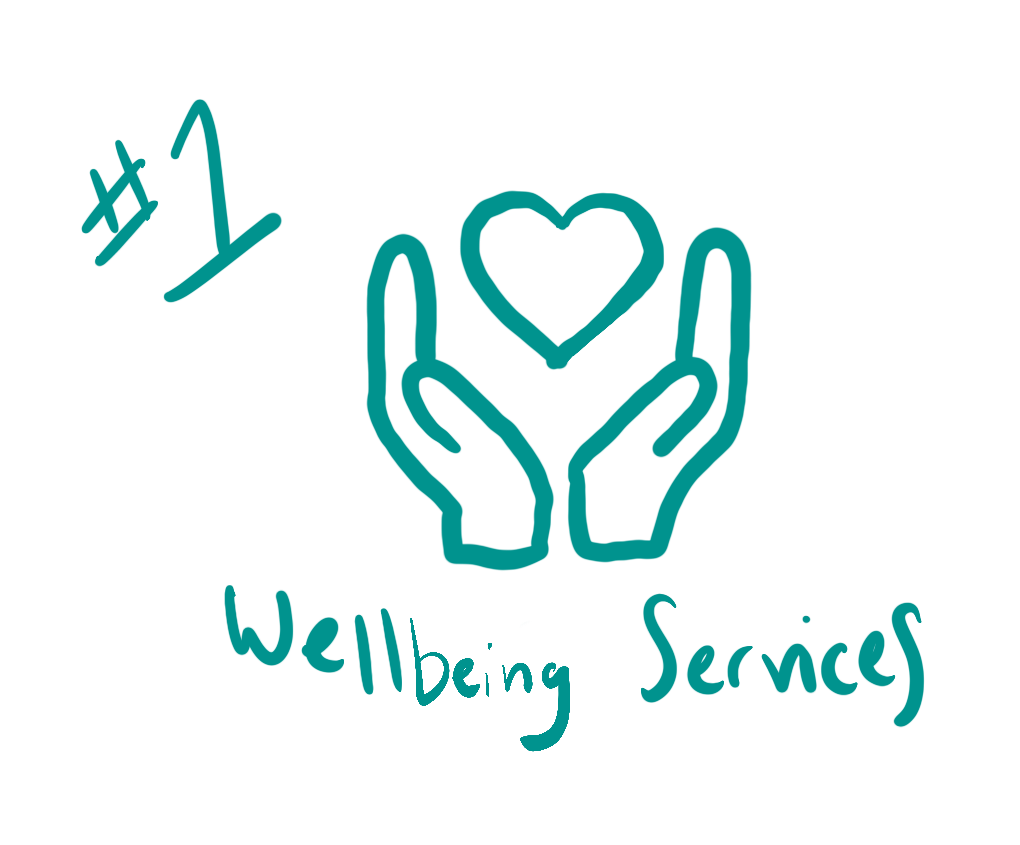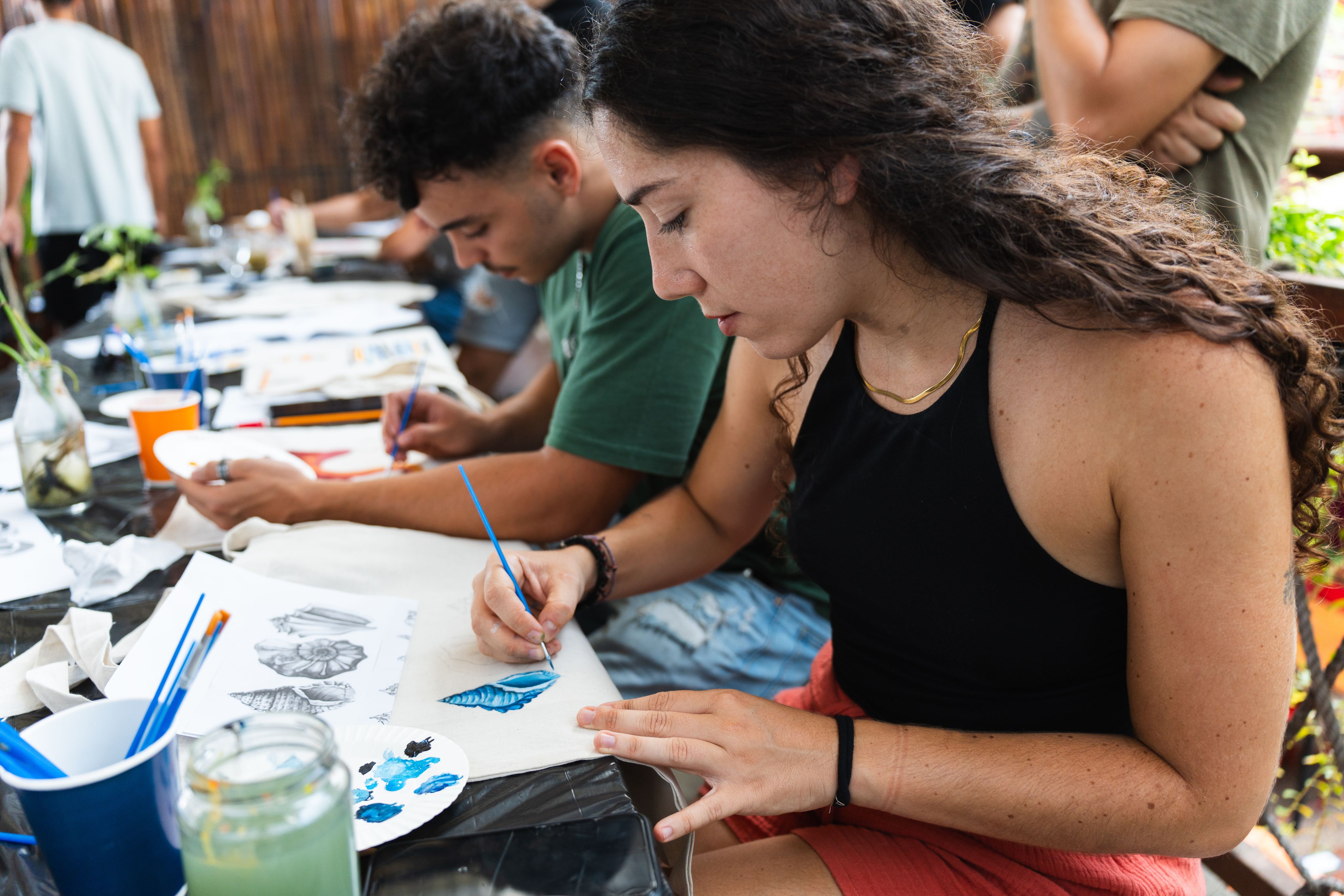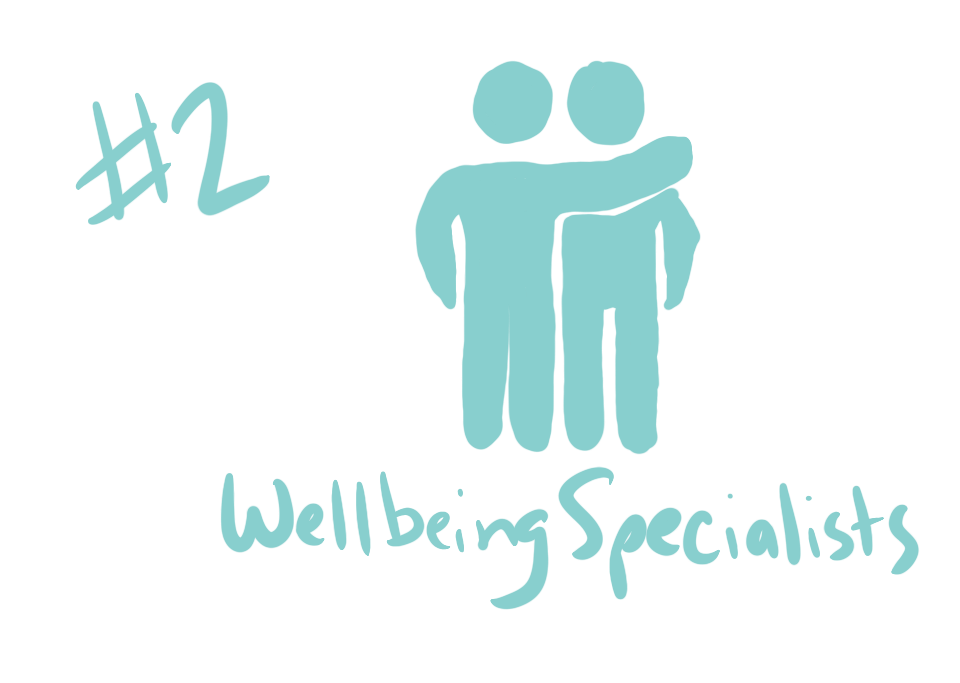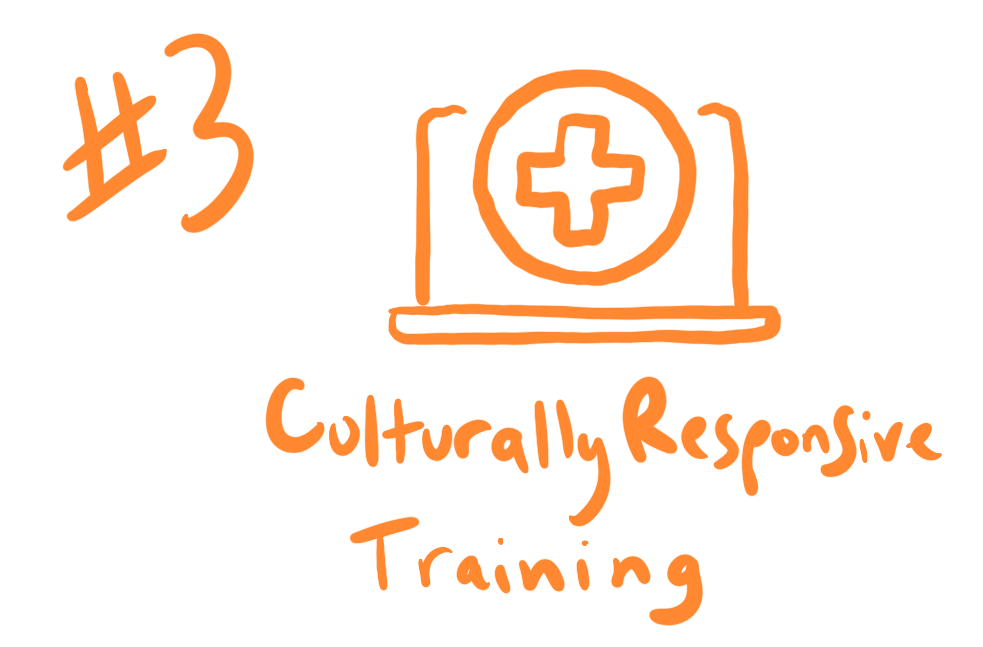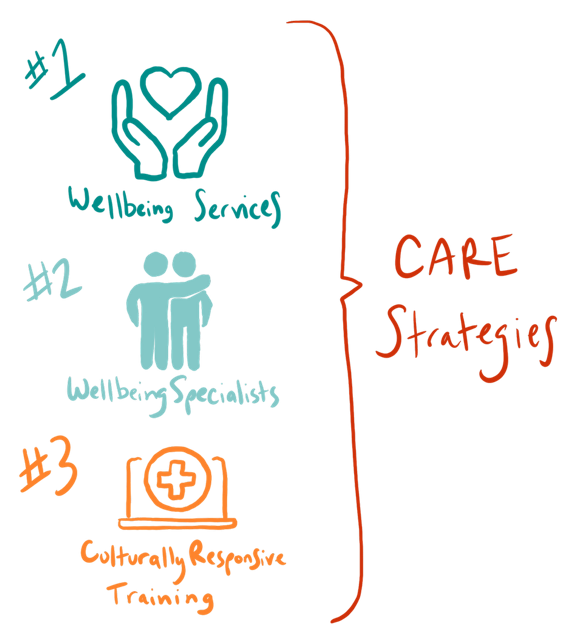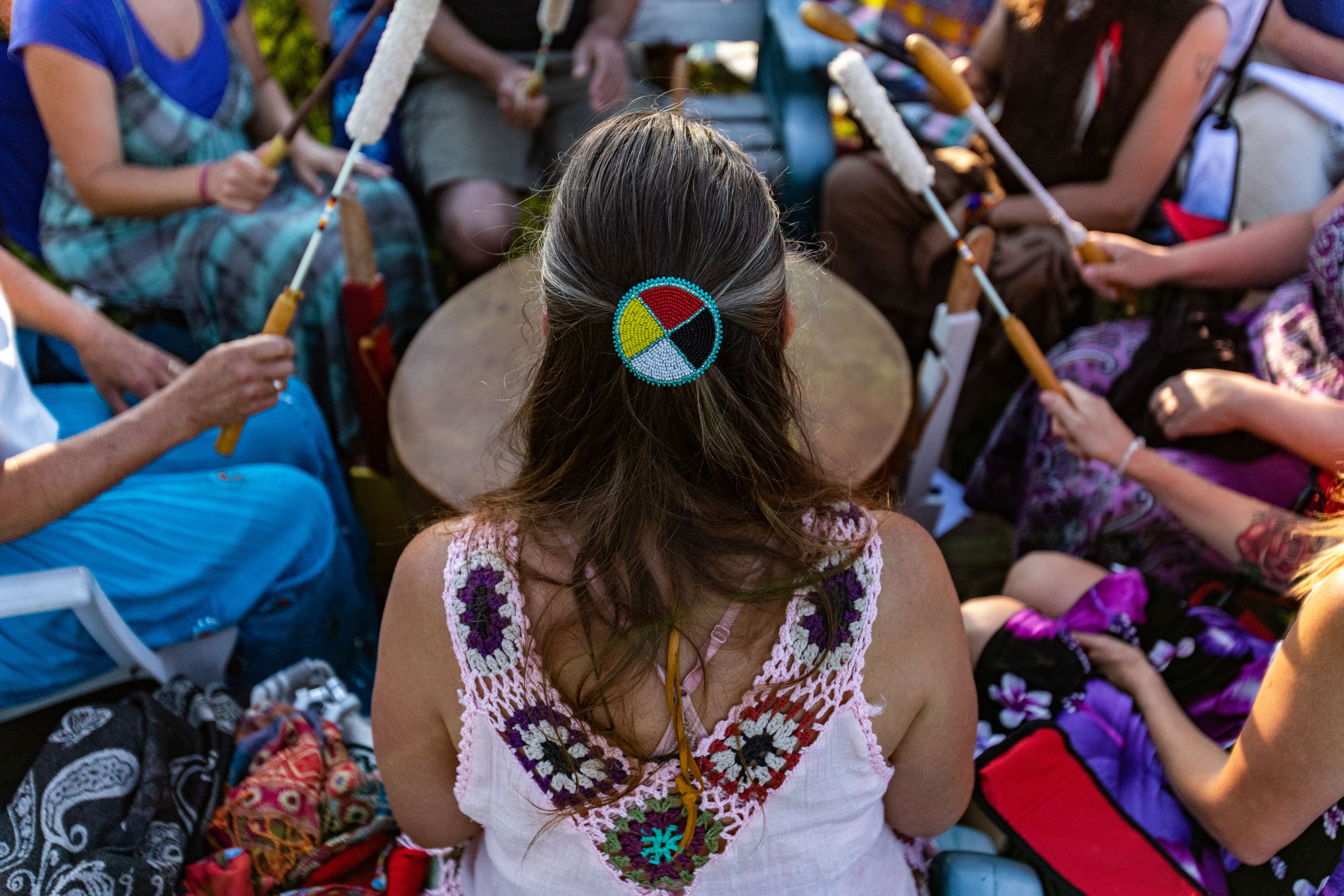An Umbrella Strategy for Strengthening Wellbeing Services in Mental Health Care
The CARE for Kids & Families project

Americans face many barriers to accessing mental health care. About half the population lives in areas with limited access to providers. Even when providers are accessible, stigma can prevent people from seeking treatment.

Historically disenfranchised groups face even greater barriers to accessing care, and few providers reflect their demographics or identity.
The current crisis is calling all of us to reimagine how we think of mental health care and how we can:
1) expand access to high quality care; and
2) accelerate workforce development.
At the request of the Washington State legislature, the CARE project is focused on these two intersecting needs.
What is CARE?
CARE is a statewide initiative funded by the Washington State legislature comprised of multiple partners across sectors and communities and facilitated by the University of Washington CoLab for Community and Behavioral Health Policy (CoLab).
CARE’s strategy was shaped by numerous and diverse groups with an interest in community mental health. Learn more about our collaborators, here.
CARE’s proposal to address unmet needs for mental health services includes three major components.
First, CARE identified the implementation of wellbeing services across Washington State as a transformative and strategic approach for expanding direct access to mental health-improving services while maintaining a culturally responsive lens.
Second, CARE is partnering with workforce development experts to develop a plan for recruiting and training individuals with lived and cultural expertise to serve as wellbeing specialists, delivering wellbeing services while providing benefit to hiring organizations.
Third, CARE is investing in culturally responsive training and leadership packages to support the implementation of wellbeing services and wellbeing specialists.
Learn more about these three key strategies by clicking the button below.
CARE Progress and Next Steps
- Formed the co-design team, advisory team, and community sounding board
- Launched co-design sessions
- Completed literature review of aligned approaches
- Canvassed 60-member community sounding board for feedback
- Developed principles to guide the subsequent program strategy
- Managed a competitive bid for a trainer to develop and deliver a Cultural Responsivity Training
- Developed wellbeing service curriculum for parents
- Collected examples and powerful prototypes of wellbeing services
- Continued working to identify the appropriate policy path for sustainability and scale
- Conducted any analysis of billing codes and health worker types
- Collected 100 examples of wellbeing services from community sounding board survey
- Completed a policy analysis of reimbursable strategies
- Piloted Cultural Responsivity Training
- Developing a workforce development blueprint (anticipated May 2025)



Wellness Coalition Members
The following organizations and individuals are currently serving, or have previously served, on the CARE wellness coalition:
- University of Washington (UW; Bill O Connell, Lawrence Wissow)
- UW Institute on Human Development and Disability (Jim Mancini, Shayla CollinsC)
- UW Center for Child and Family Well-Being (Liliana Lengua, Becca Calhoun)
- Community Health Plan of Washington (Terry Lee)
- Deconstructing the Mental Health System (Makinie Fortino,C Chalon Ervin,C Taquesha DeanC)
- Greater Health Now (Kaylee Wade)
- Great Rivers Behavioral Health Administrative Services Organization (Ray GregsonC,W)
- Health Care Authority (Paul Davis, Teresa Claycamp, Diana Cockrell, Amanda Bozley, Todd Jensen)
- Heritage University (Winona Wynn)
- Molina Healthcare (Libby Hein)
- New Americans Alliance for Policy and Research (Someireh AmirfaizC,W)
- New Developed Nations (Deekon JonesC)
- North Star Advocates (Jim Theofelis)
- Pediatrics Northwest (Mary Ann Woodruff, Rachel Lettieri)
- Providence Health & Services (Rebecca Betts)
- Seattle Children’s Hospital (Cindy Trevino,C,W Martha Ortiz,W China Bolden)
- SPARK (Carolyn Cox,W Cece Byrd, Estefania Cervantes)
- Washington Chapter of the American Academy of Pediatrics (WCAAP; Ali Goodyear, Sarah Rafton, Laurie Lippold)
- Trenecsia WilsonC
- Workforce Central (Kari Haugen, Jami Armstrong)
Note: C = CRT Subcommittee member, W = Wellbeing Services Subcommittee member
To learn more about CARE, please visit our website.





